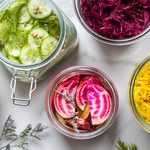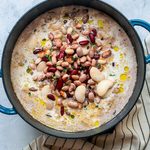What can Canada learn from Brazil’s proposed food guide?
This South American country has a unique plan to combat its growing obesity problem

Source: Best Health magazine, Summer 2014; Image: Thinkstock
Soccer fans flocking to Brazil for the 2014 FIFA World Cup (June 12 to July 13) may find very roomy seats, depending on the stadium they are in. Partly because of Brazil’s obesity problem, at least one percent of seats in the country’s newly built World Cup venues will be extra-wide’about double the size of regular seats.
According to a 2013 report by research firm GlobalData, by the year 2022 an estimated 64 million people in Brazil, whose economy has grown rapidly in recent years, will be overweight. And 26 million’more than one eighth of the population’will be obese. Those numbers are really scary.
Here’s the good news, and it’s something Canadian policy-makers may want to consider: Brazil’s ministry of health has proposed a new food guide that focuses not on nutrients, but on meals and foods. It’s ‘a recipe for health,’ says Dr. Yoni Freedhoff, medical director of the Bariatric Medical Institute in Ottawa, and author of The Diet Fix. He calls it a refreshing new approach, adding that many of the world’s dietary guidelines, including Canada’s, ‘are stuck in a nutrient-focused approach where the goal is to ensure people meet their nutrient quotient. But people don’t shop for nutrients; they shop for food.’ He also notes that a nutrient focus confuses consumers into thinking that a highly processed food that has been enriched with a nutrient is a healthful choice.
Jean-Claude Moubarac, a post-doctoral research fellow at both the University of São Paulo in Brazil and the University of Montreal, worked on the guide, which at Best Health’s press time was still undergoing public consultation. ‘It was important to have a guide that was updated and addressed the most recent view of nutrition,’ he says. That view also includes a focus on the role of food processing and the context of eating. ‘The way you eat is as important as what you eat,’ says Moubarac. ‘Think about the role food has in our lives. We tend to be busy and stressed, and see eating as something we need to do quickly.’ Instead, meals should be prepared and enjoyed with others.
Freedhoff agrees: ‘[The guide] has a benefit beyond nutrition, and that is cooking regularly and eating together as a family.’
Advice in Brazil’s proposed food guide
1. Prepare meals from staple and fresh foods.
2. Use oils, fats, sugar and salt in moderation.
3. Limit your consumption of ready-to-consume food and drink products.
4. Eat regular meals, paying attention, and eat in appropriate environments.
5. Eat with others whenever possible.
6. Buy food at places that offer a variety of fresh foods. Avoid those that mainly sell premade products that are ready for consumption.
7. Develop, practise, share and enjoy your skills in food preparation and cooking.
8. Plan to give meals, and eating, proper time and space.
9. When you eat out, choose restaurants that serve freshly made dishes and meals. Avoid fast-food chains.
10. Be critical of the commercial advertisement of food products.
This article was originally titled “Brazil gets cooking” in the Summer 2014 issue of Best Health. Subscribe today to get the full Best Health experience’and never miss an issue!




